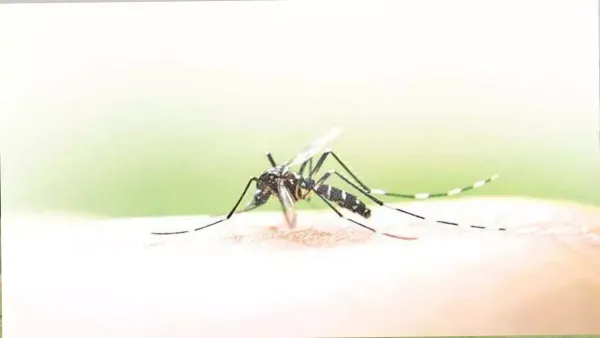
Science: A study has found that the increase in temperature promotes the spread of dengue, but rains may increase or decrease, it depends on how long a dry season has been in a field. Is.
The outbreak of dengue has increased due to hot, humid conditions due to climate change, including earlier even in unaffected countries, a study published in Journal Science explained in detail how temperature and rainfall do mutual activity and diseases How to affect the spread of
Researchers led by Korea Advanced Institute of Science and Technology and Institute for Basic Science emphasized the role of local climatic conditions in the spread of dengue, requiring customized strategies in the prevention of disease.
Dengue is a viral infection, caused by infected mosquito bites. The climate of tropical and subtropical regions is considered favorable for the spread of this disease, mostly in urban and semi-urban areas.
Focusing on 16 areas of the Philippines, which are known for their diverse climate, researchers analyzed the five -year data recorded between January 2015 and December 2019, while increasing temperatures continuously spread dengue in constant areas. High rates belonging to high rates, it was found that the rainfall increases the spread of the disease in eastern regions and reduces it in western regions.
The team said that the adverse effects of rain affecting the spread of dengue depend on a “pre -ignored” important factor – 'variation in dry weather', which dry weather between different geographical areas (less or without rainfall K) refers to the difference in how long it lasts.
Researchers said that in low changes in the duration of dry weather, the rainfall out the stable water, reducing the breeding sites of mosquitoes, which reduced the spread of dengue. However, more changes in the length of the dry season In areas, sporadic rainfall created new reproductive sites and weakened the flushing effect, leading to increased mosquito population and dengue cases.
The first writer of Korea Advanced Institute of Science and Technology and Institute for Basic Science, Olive R.K. Caviding said, “Our findings provide strong evidence of how climate factors affect dengue infections in various environment. This is an important step towards understanding that climate change is globally mosquito How can it affect diseases caused. ” To validate their findings, researchers extend their analysis to Puerto Rico, which is another area with different climate patterns.
Data from municipalities, including San Juan, Adjuntas and Ponson, were analyzed, which included a 20 -year duration from 1986 to 2005. The findings showed how rain controls the spread of dengue and “align with the results of the Philippine data”. The authors wrote, “We found that the temperature continuously increased the incidence of dengue in all areas, while the effects of rainfall differed depending on the variation in the length of the dry weather, a factor that was previously ignored.” He wrote, “Our findings emphasize the requirement of customized prevention strategies based on local climatic conditions, not to all attitude of the same size.”